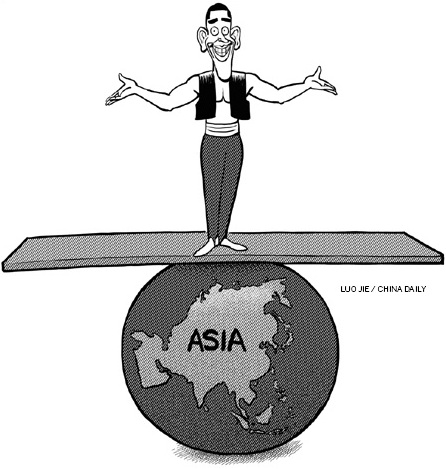Op-Ed Contributors
This is America's new Asia policy
By Wang Fan (China Daily)
Updated: 2010-06-04 07:54
 |
Large Medium Small |

Two points in America's "new Asia policy" deserve special attention: US President Barack Obama's deep interest in the continent and America's role in the post-global economic crisis era.
The US says it wants to "build new partnerships", but it has been "strengthening old allies" in Asia. So, the word "new" should be interpreted as paying more attention and allocating more resources to Asia.
Emerging powers in Asia - China, Russia, and India - pose a challenge to the US, countering which is the most important part of Washington's global strategy. Besides, keeping channels to Asian countries open is the bottom line of America's Asia policy.
US congressmen may debate whether Europe or Asia should get the priority in their foreign policy, but in reality the American administration has not neglected either of the continents. Its new Asia policy may then be related to the possible developments in the continent, such as the prospect of closer cooperation among East Asian countries.
The developments of the past few years have raised a new question: How will the US alternate its Asia strategy in the post-economic crisis era?
The answer comes in two parts. First, the US suffered a lot because of the economic crisis, but its influence upon Asia did not subside. In fact, just the opposite happened: The change in Asia's political landscape helped it strengthen its military presence in the continent. Second, the US would want status quo in Asia if its global strategy meets with difficulties.
A key point in America's Asia policy is the impossibility of any plan aimed at political restructuring. Since the Asian political landscape will not yield any benefit to the US, and the price for such a bold plan would be unbearably high, the US prefers status quo. Of course, the situation in the Middle East may be different because not many countries there can counter US influence.